Tommy Cash Dropped a New Single, but Who Really Gives a Shit?
Watch the new music video below.
Stay informed on our latest news!
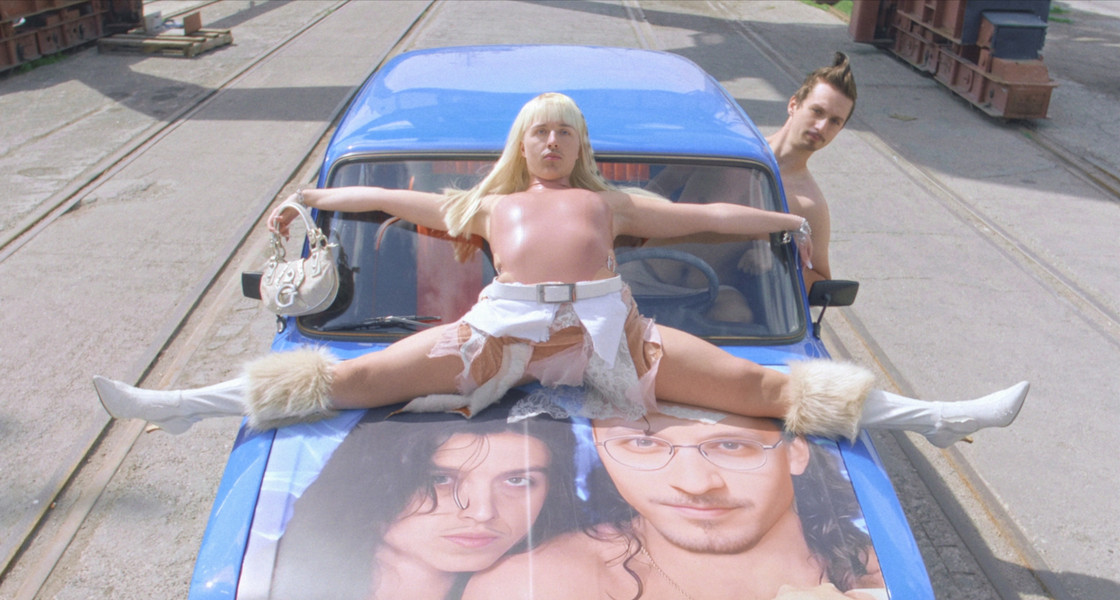
Watch the new music video below.
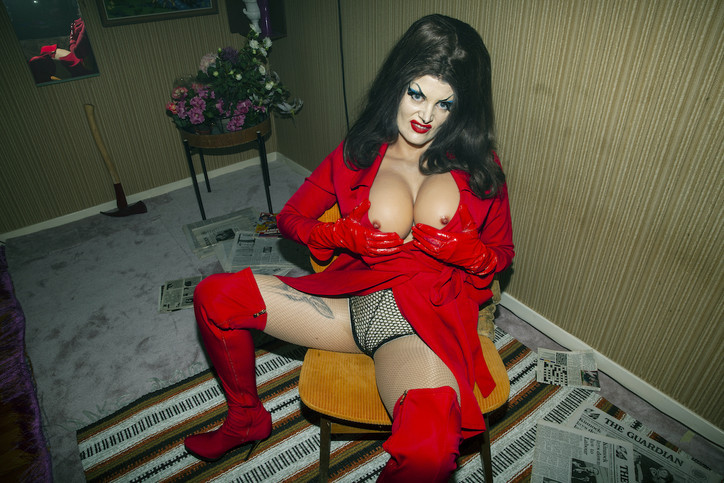
When you first started making music, was it different from the work you're putting out now with Radical Romantics?
I started to make music 35 years ago. So I've been doing this for a very long time now. When I started to make music, I had no idea one could have it as a profession or make money out of it. Back then, I just [made music] because I just felt I had to do it. There was a strong urge to do it, which I still have. But, back then I also did a lot of other things. I went to school, I worked on a lot of other things. And now ,I think after every album, “What am I going to do now?” I’m not sure — I’m never sure that I will continue making music. I'll think, "maybe now it’s time I need to start studying to get some other kind of job or something." But then I always come back to the fact that there is this thing I need to find out more about and there are still stories to tell. I take it very little at a time.
When a lot of people first start out with music and touring, they go at it really intensely and burn out. I don't know if that's happened for you, but if it hasn't, that's good.
I totally understand one can get bored and very exhausted by touring. I got that last time, five years ago. And now this time around we planned it very differently. So it’s not that many shows — it’s less intense. And there’s room for doing other things in-between. It’s always important to come back to, “Why am I doing this?” Because the most important thing is to take care of your relationships, and that can be quite difficult on tour. It’s important to have a tempo that allows you to do other things as well.
If you’re not doing a bunch of shows a week, maybe you have to actually explore the city you’re in or at least get some rest and call your family. So I’m glad you’ve planned out your tour in a way that lets you rest and recharge, and you know — catch your breath.
I think that’s important. Economically, it’s really bad to do that. But yeah, we’re trying to do that in a more healthy tempo.
You bring up the idea of knowing why you're making music, knowing why you're going on tour. What's your reason?
We have stories that are important to tell. I think what we're doing on stage is very important in these times. I mean, we have a band of women and non-binary people. And we are telling stories about queer life, which, today — is more important than ever.
I think wherever you go, you're really building a community — which isn't to say it wasn't already there…
Yes. I mean, it is really something that we also create together, gathering in a room and listening to music. It's a very strong force. And it's something that we just have to continue to do.
And no show is ever going to be the same — you're never going to be at that venue with that same group of people again, so it's a very surreal experience to know that, everyone who's there, they're there for themselves and for you.
Yes, it's something you can feel. You can feel an audience and you can feel that there’s something going on between us and that there’s something going on in the room, which can be magical. It's a very strong thing that happens.
Are there certain aspects of queer culture that you take and transform for inspiration?
That's a good question. We have very specific inspirations — like John Waters' films and all these ideas about camp. Those are very present. And there’s so much — it’s an old thing in the EU/UK, based in a kink and BDSM scene, and we were collecting a lot, looking at pictures, and we made the plunge in the last album. It's still quite present in our aesthetics. Both of us look at so many things and read a lot of old stuff, old queer history, and culture.
Yeah! When I was looking at the images, the BDSM and the kink influence is very clear, with the fishnets and vinyl gloves.
Yeah, it's beautiful. It's a very powerful thing to be able to continue queer history, to be able to continue telling queer stories. In these times it's so important — it's about existing.
I mean, if anything, this is a testament to our existence.
We can't be erased.
You know, especially with the state of American politics today, I think your work is extremely relevant.
And it's happening in Europe as well, with right-wing conservative movements happening in so many places now.
Globally, everyone's talking about how much we've progressed. But when you think about it, if this is progression, then our bar was set really low.
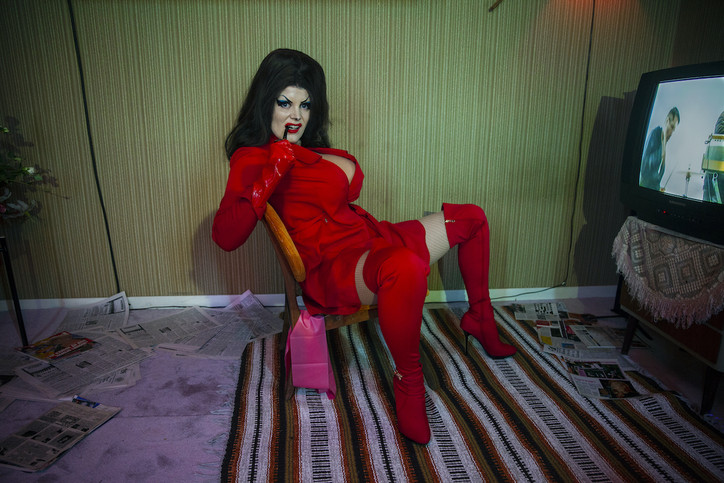
Can you tell me about the story you're telling with your most recent photoshoot?
That’s from when we did the video for a track called “Even It Out.” I've been working for a long time with a very dear friend and collaborator, Martin Falck. We did the “Even It Out” video. And we talked for a long time, too, that we wanted to have a femme character. And it was not so easy, it was unclear– how it was going to happen. But then, we had been looking at these films by John Waters, and the actress Divine. And we felt like, “That’s great!” I mean, that's a great inspiration for this video. It's also the first time we created a character that is completely free of shame — which is fun. Because the other ones we've had have been a bit oppressed in some way. But this one is completely open and free and really enjoys themselves and their body. It was a really fun character to step into.
I can imagine that with all the different characters you make your own mental utopia.
I think we're suggesting other worlds, other situations, other ideas. But also for us to create a space where we feel free. That is the best part about making art — that you can create this place of freedom.
So what what is it like stepping into each new character? Do they feel like entirely different people?
I worked with Martin on this once, and I think we start from more emotional characters. It starts more with a feeling. And then we collect photos and images and films with ideas that we want to try out. And then we just sit down and try to organize and nail it down to what it is, “Okay, this sort of feeling emotional character can look like this.” And then it's like making a sculpture or something. Me and Martin feel very close and connected to these characters, but sometimes they are a bit more extreme. So, to make them fun is a very important thing for us, so we also feel like we can laugh about them.
They're all very fun! They're all very campy and even if you are portraying sort of somber feelings are very serious and grounded, it’s never depressing.
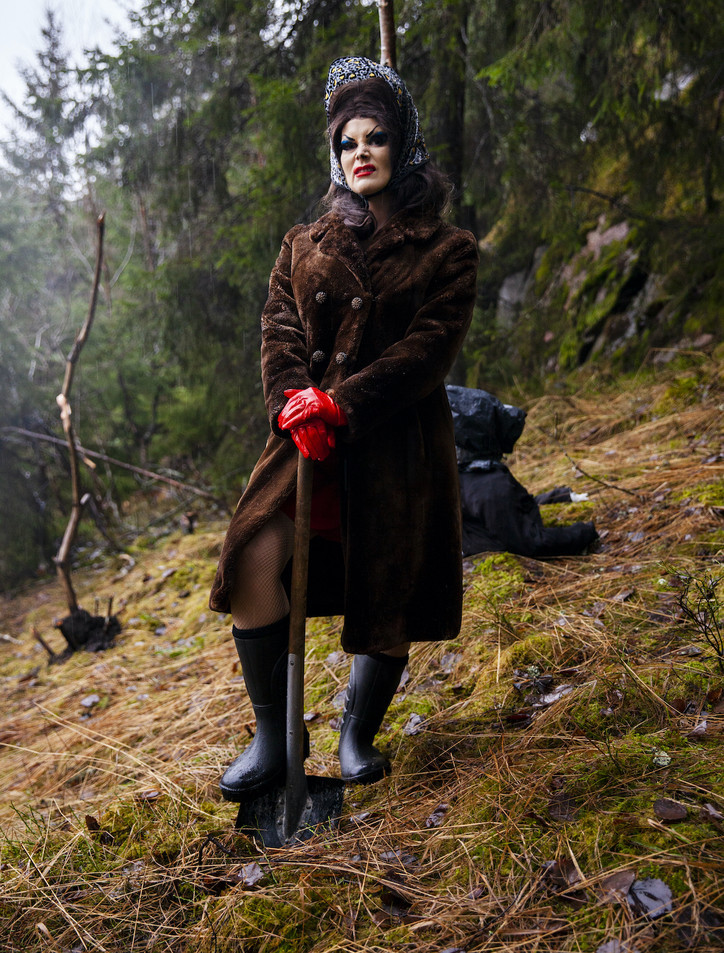
You have such a range throughout your discography. You use all of these different voices. How do you determine which voice to use in a song?
I think the voices are more assigned to different emotional spaces. It’s very intuitive. I try to find the right vocals to tell a specific story. And I have a sort of have a very large range myself, and then I also use a lot of machine programs to stretch it even more. But I think it's really fun to play with the idea of authenticity. My voice can be anything from here to there. And all of that is me. And it's a lot of fun to play with that.
As much as telling queer history is important, maintaining that element of joy, happiness and celebration within the context of queer histories is also really important. So I'm glad you're having fun. Thank you.


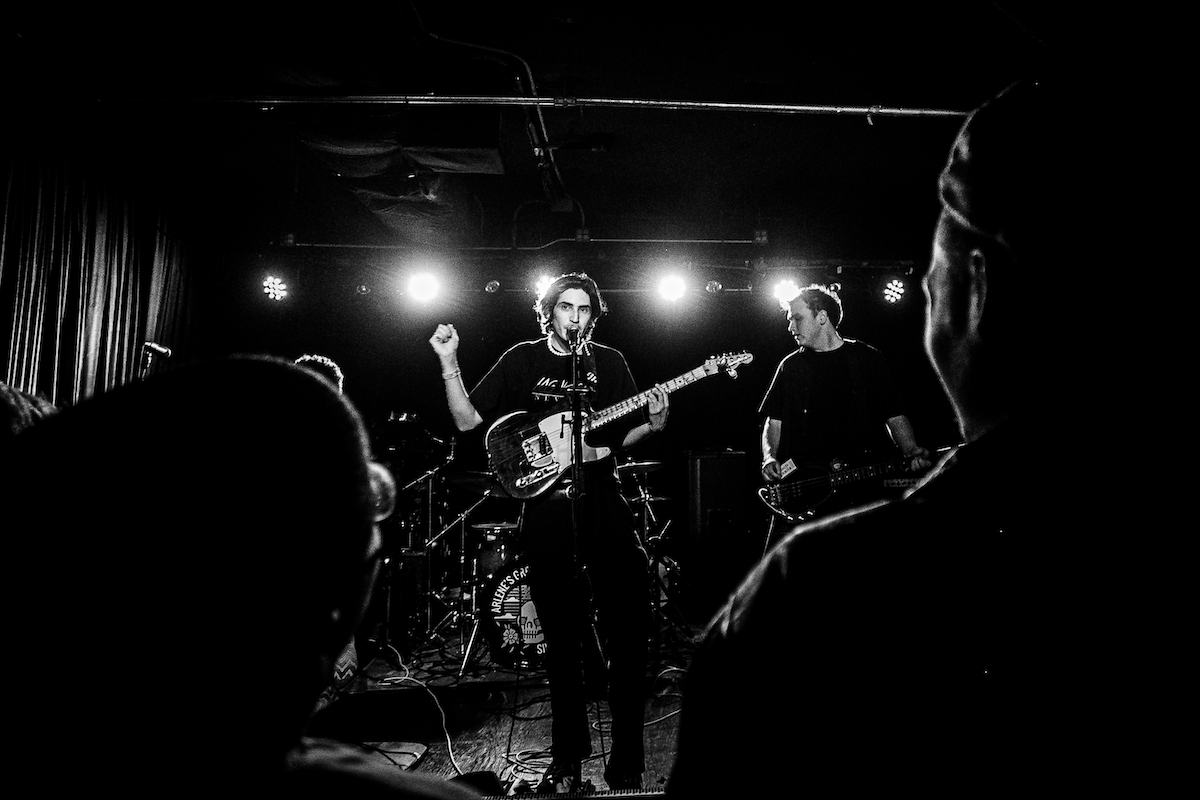
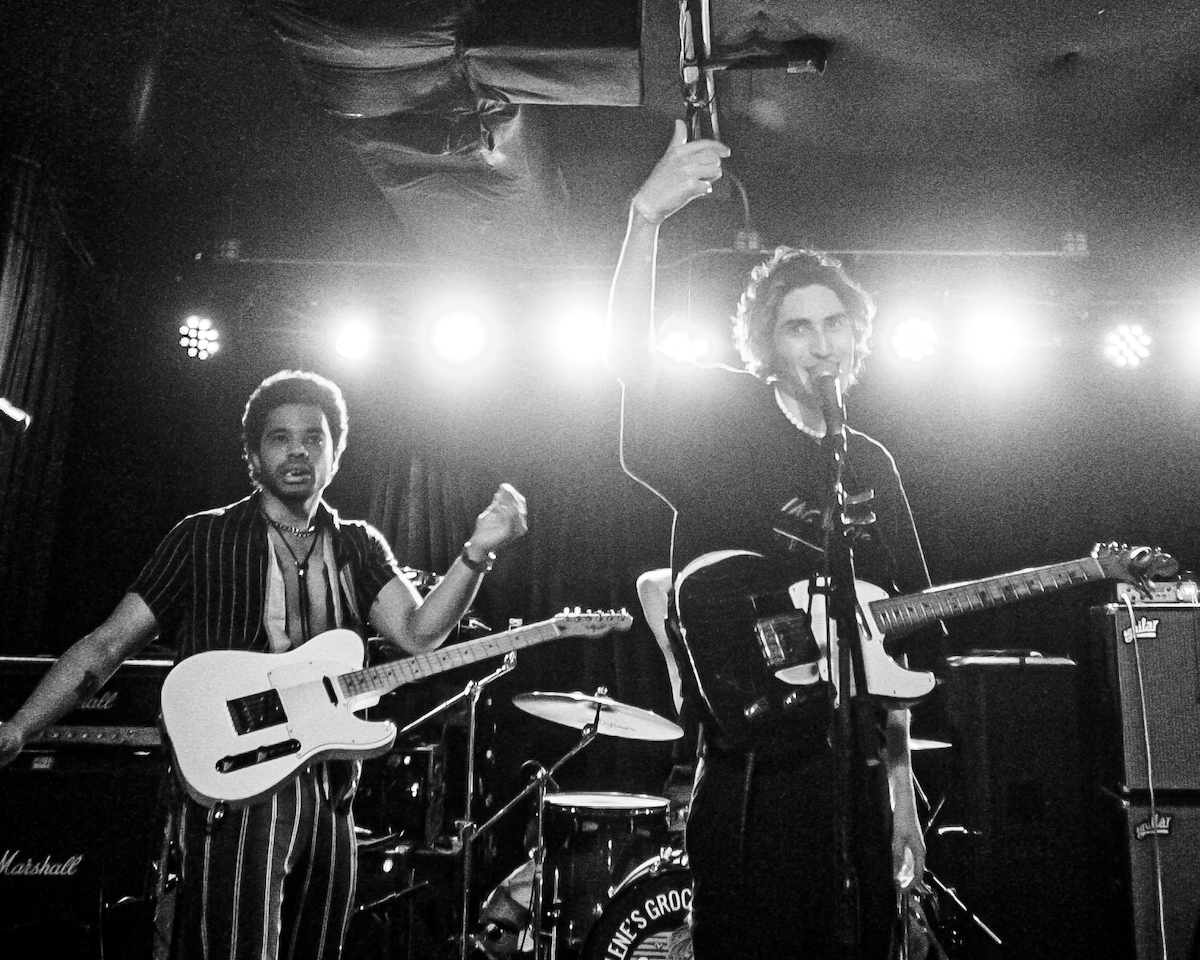
I sat down with three members of Nautics at the Bus Stop Café, the relaxed West Village spot, and instantly noticed their evident bond, both within and outside of their bandmate relationship. I recognized their impenetrable rapport as they hurled good-natured insults at each other over a plate of rapidly-vanishing chicken tenders. "A lot of... us... is just arguing until we stop arguing and then that means it's done,” Repola said at one point of how they chose the band’s name.
Nautics' distinctive sound is new wave adjacent and frenetically upbeat on their recorded tracks but leans into something punkier live. The influences they list are eclectic, including Gorillaz, The Strokes, XTC, and Elvis Costello. “We do a lot of ska stuff accidentally,” bassist Van Cameron laughed. It was the verve of Nautics’ performance style, however, that first caught my attention, as I watched Repola make fevered forays into the crowd at a January 25 show they played at Sour Mouse, his eyes wide under stripes of graphic eyeshadow as he encouraged audience members to sing along to the gory lyrics of “Fruit Punch.”
This commitment to face-to-face engagement and displays of visceral intensity is how they realized their ethos as a band; again and again, the band locates themselves in a sort of reactionary cohort relative to the heyday of withdrawn, irony-tainted indie acts. “There was a space in the indie community where everyone was just too cool for school. We realized that wasn't cool and I think that's the conclusion everybody else is coming to as well, that it's actually cooler to be honest and to just shout and to cry and to whine,” Repola says.
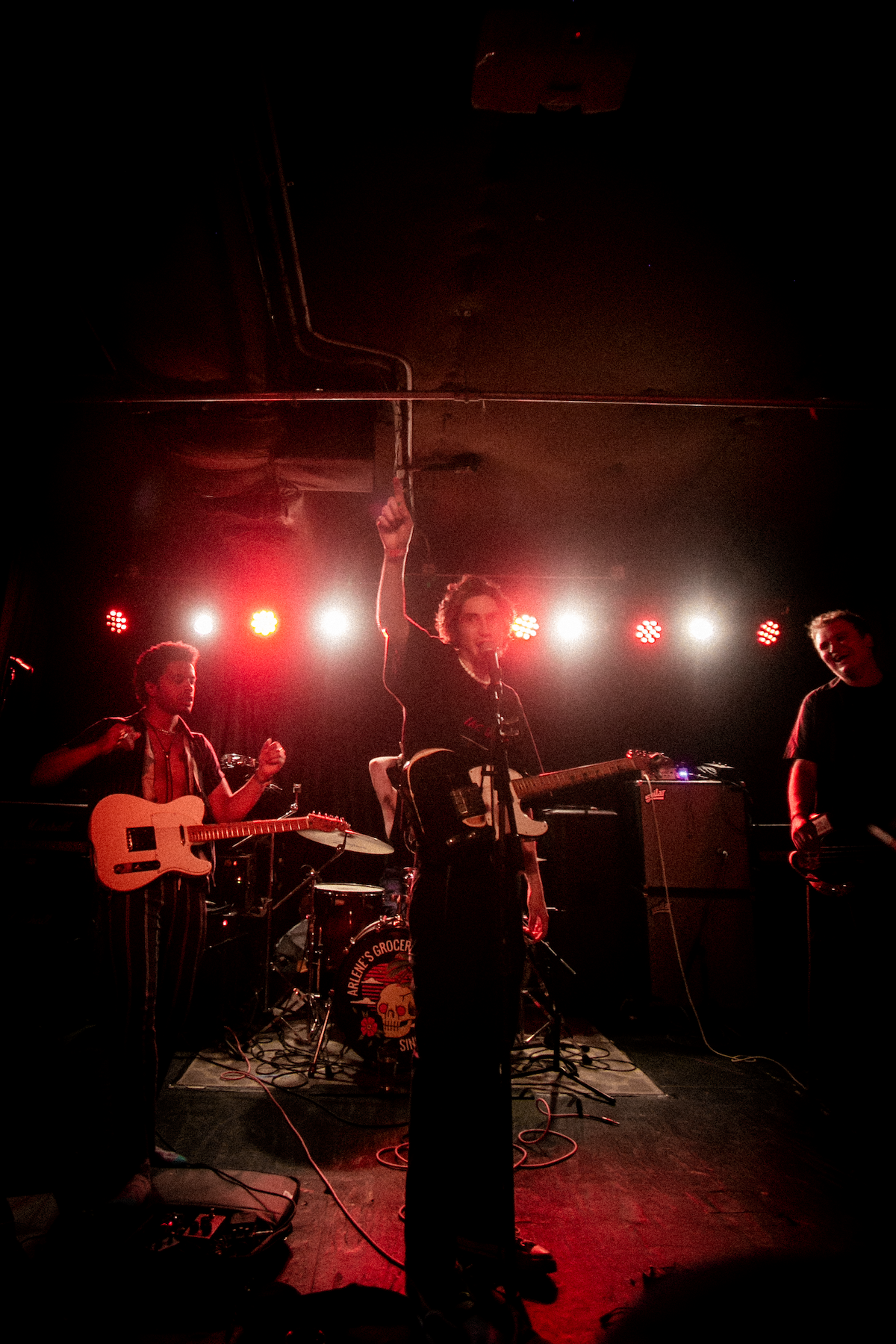
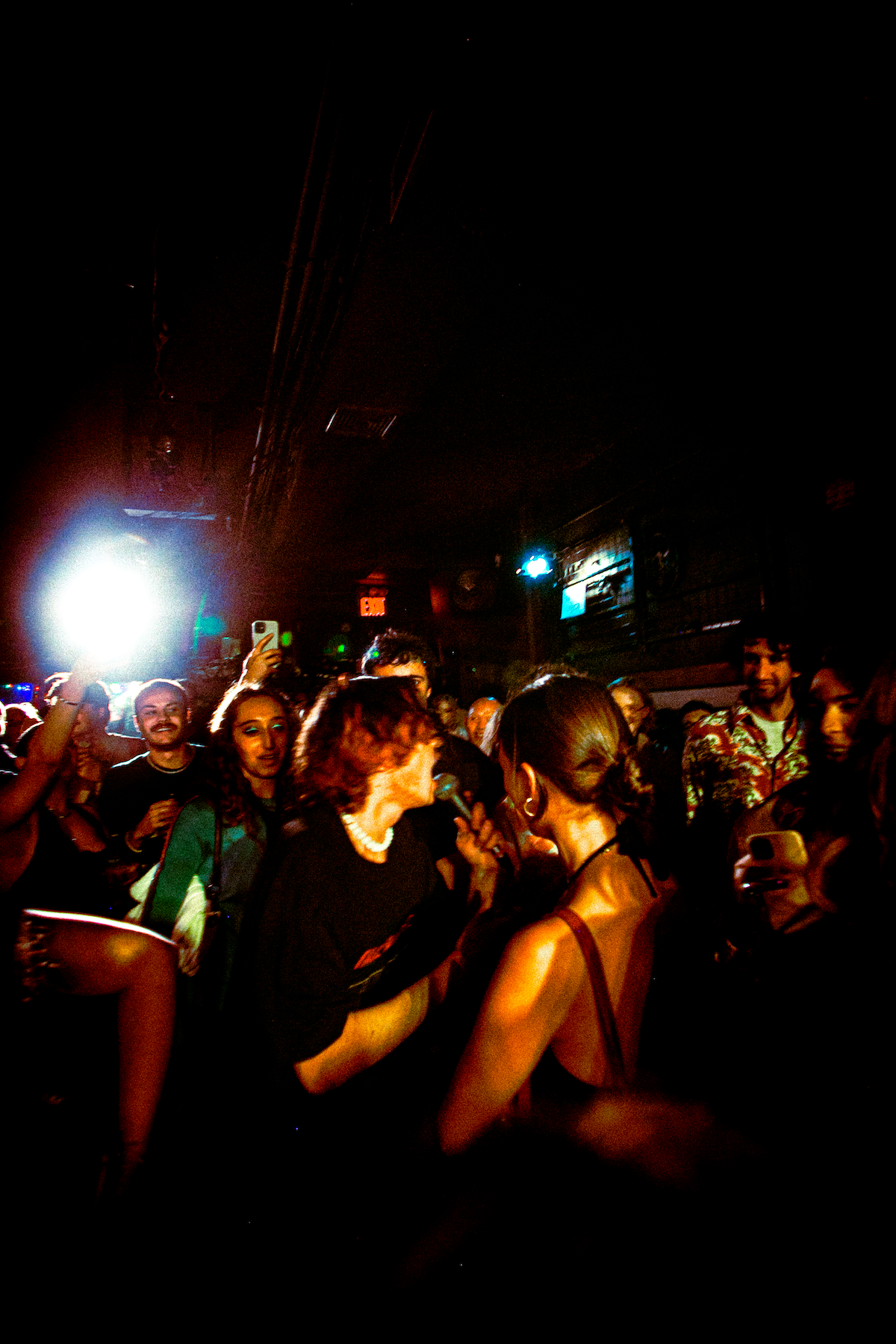
This tension between presenting an obligatory facade of detachment and feeling internal discontent is the throughline of the band’s latest release, “Shotgun Shack,” the narrator constantly anticipating a misinterpretation of their feelings: “I’m not bitter/I’m just a reject/I’m not frowning that’s just a reflex/Heart beats starting only when needed...I’m not angry/I’m just sour.”
Though they’ve been a fixture of the local live music scene, seasoned at playing the Brooklyn and downtown Manhattan venue circuits for over seven years, the band retains an admirably humble self-awareness about the realities of creating and aspiring to be recognized for it. “Being a band is inherently a little vain. You have to think that you're worth watching and being paid. It's incredibly narcissistic, which is why you have to have a lot of reverence for the people that come to see you because they're giving you everything to feed your ego. That's a very sensitive thing,” Repola says, asserting that their “core value” is putting on a show “worthy of being seen.”
Their show at Arlene’s Grocery delivered on this promise, complementing the momentum they’ve picked up from their recorded songs. On the way out, I’m intercepted by a self-described “Nautics groupie” named Franklin, who discovered Nautics on Spotify and raves openly about the poeticism of of the band’s lyrics and the performance of Shotgun Shack we had all just seen; a taste, perhaps, of larger-scale success to come.
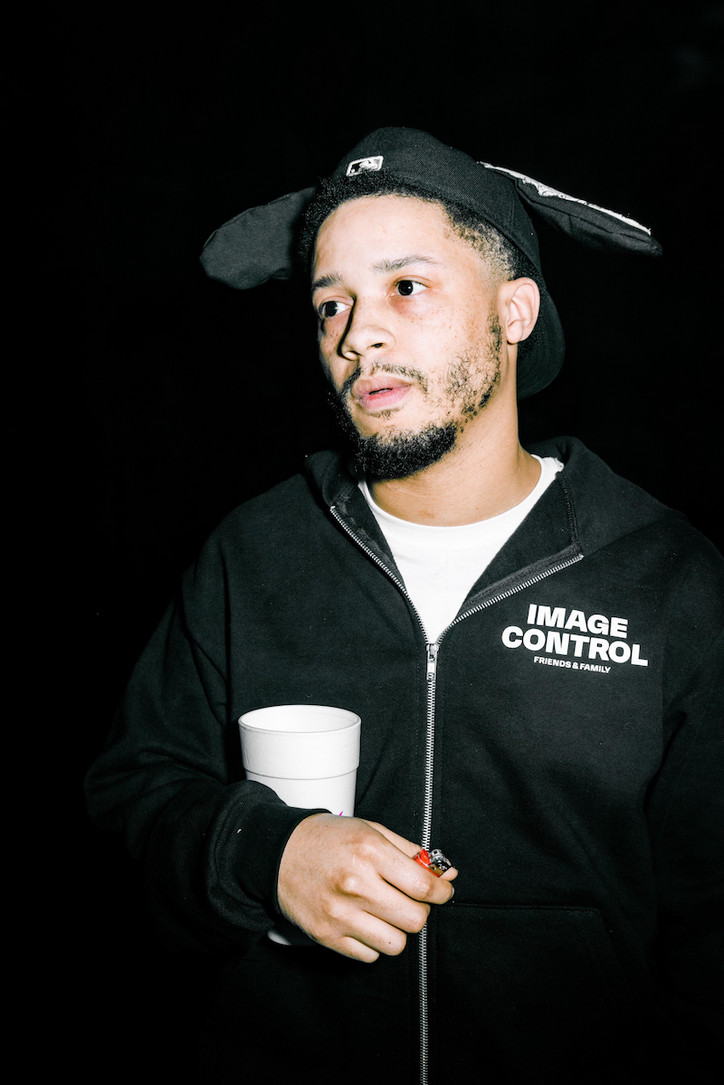
Veeze has only released singles over the past years. His last full-length project was Wavy Navy released in 2019. It wasn't long until he blew up in Detroit, and now slowly taking over the nation one single at a time. While his lyrics are known to lack cohesion, the city of Detroit, and even some of those outside of the city, know exactly what type of messages Veeze wants to get across.
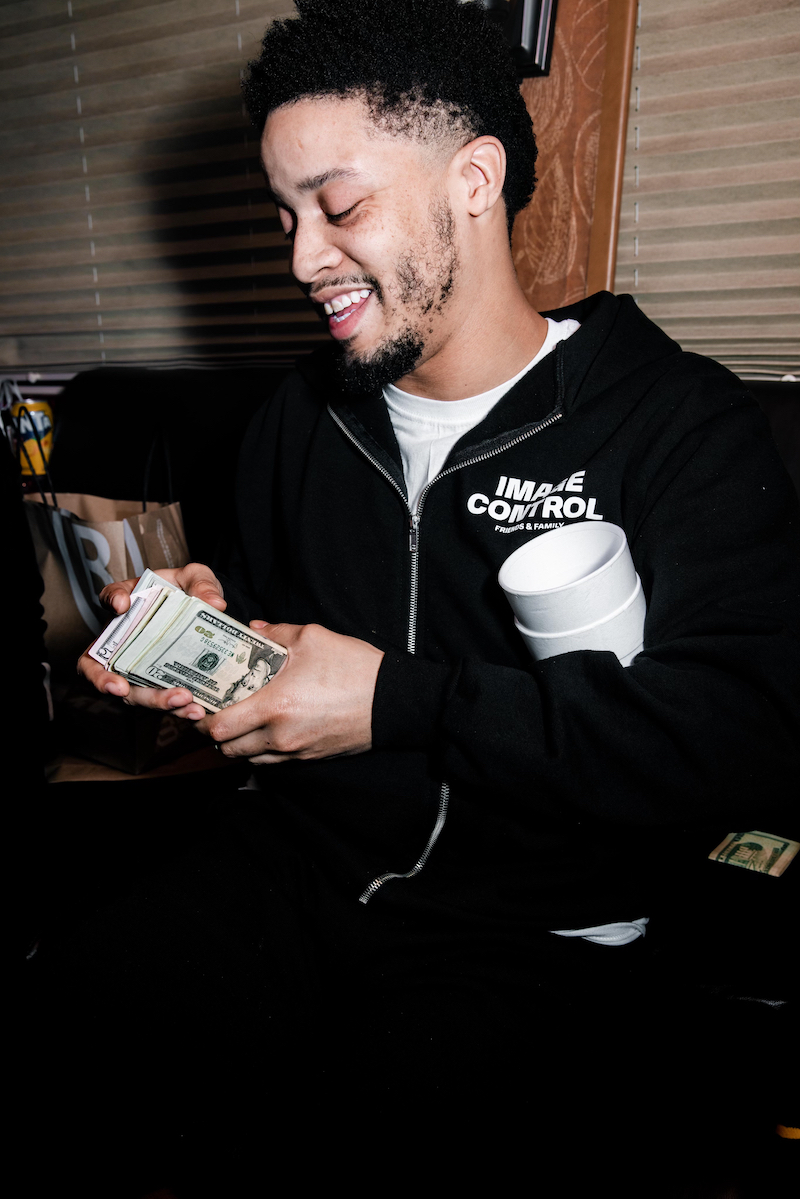
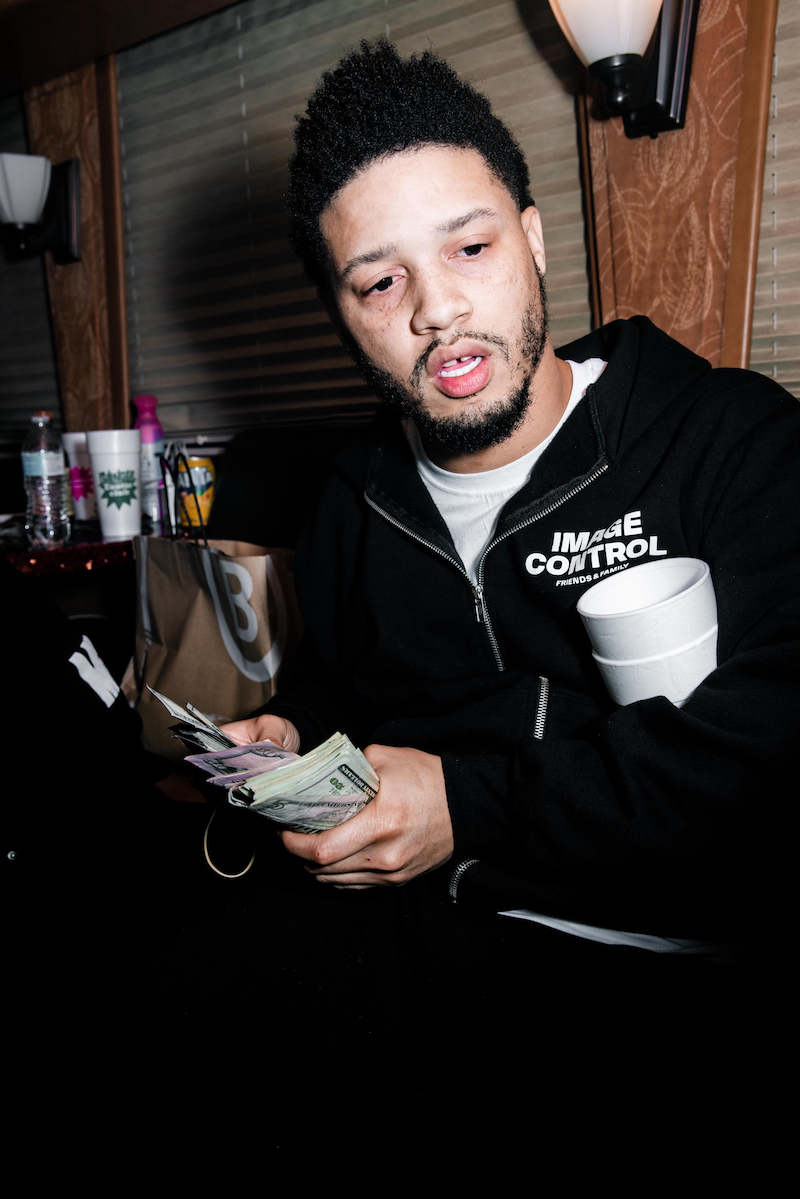
He acquires a unique type of individualism: an effortless and cool personality with an affinity of intimidatingly skillful songwriting. He may not be known around the world yet, but the amass of A-list musicians he's already worked with speaks for itself.
Watch the official visualizer below.